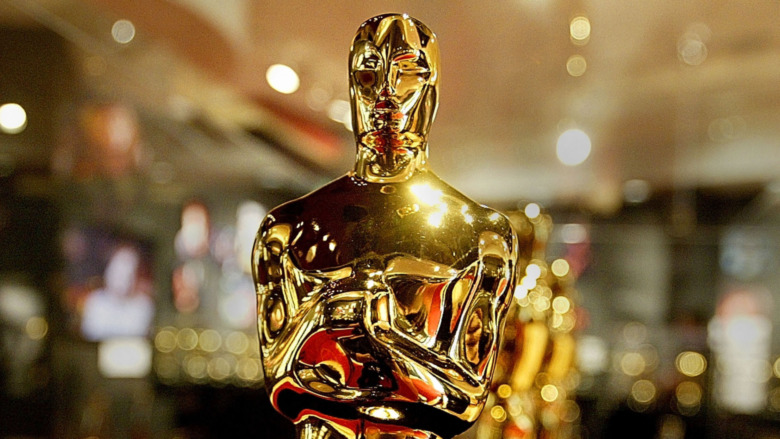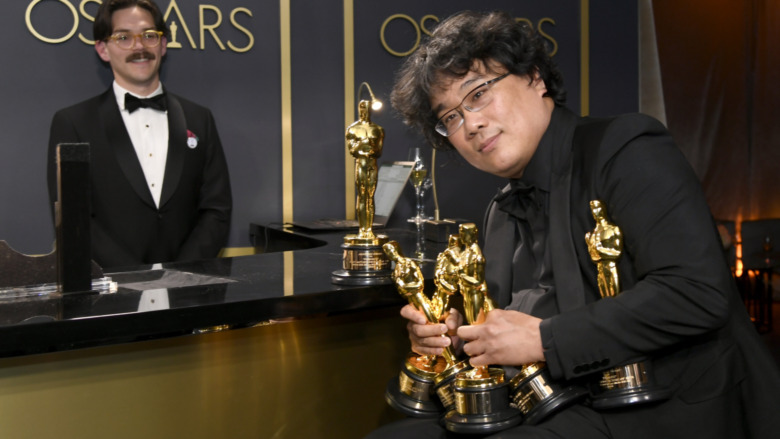The Real Reason Oscar Statue Nameplates Are Blank When Awarded
There's no doubt that 2020 was an odd and interesting year for movies, even if only because of the pandemic. Theaters had beern shut down since March, streaming services were at an all time high (Statista reports nearly 80 percent of the American public uses a streaming service now), and the release dates of big-ticket blockbusters such as Black Widow were severely delayed. Netflix, in particular, once known as merely a catalog of licensed films, has taken to funding some truly prestige projects such as Ma Rainey's Black Bottom, Mank, and the Trial of the Chicago 7, all of which are up for awards come April 25. Lest the cable networks fall into utter and immediate irrelevancy, though, it's ABC who'll be hosting the event, as Oscars states.
Two folks step on stage from opposite directions. Fans get a chance to see faces of people glittering in spotlights (or like James Corden and Rebel Wilson in 2020: faces behind cat makeup). There's some banter, some repartee, and clips of the films in question are shown. One of the presenters flips out the magic envelope, "and the winner is..." boom: You yell "touchdown!" and lick the buffalo sauce from your fingers.
But those statues — the little gold guys standing on platforms? Have you ever seen a closeup of one, perhaps being cradled in the hand of a winner during a backstage press conference? On the night of the awards the nameplates on the prizes are all 100% blank.
The nameplates are blank to conceal the names of the winners
So it stands to reason that each winner should have their name emblazoned on their golden idol, correct? At least to prevent each identical trophy from winding up in the hands of another winner. Well, it turns out that until the night of the Oscars, there are only two people in the world – two – who know the identities of the winners, and they are intent on keeping it secret, keeping it safe.
As Britannica tells us, two accountants from the Academy of Motion Pictures Arts and Sciences tally all the votes, make the envelopes, and stuff them. The Board of Governors, the academy's governing body comprised of 8,000 members, votes in two waves — first the nominees, then the winners — and the info is funneled directly to the two anonymous accountants. There are some other rules to help keep things fair. A candidate needs a minimum number of votes to be a nominee; a film has to be exhibited in theaters for at least one week (we're guessing this rule has been adjusted for streaming services). Voters have to be related to the category within which they're casting their vote — for example, Meryl Streep can't vote for sound editing because she's too busy being awesome at acting.
It's only at the Governor's Ball, the Oscar's after-party, that the winner's names are placed on their awards, as LA Mag says.

